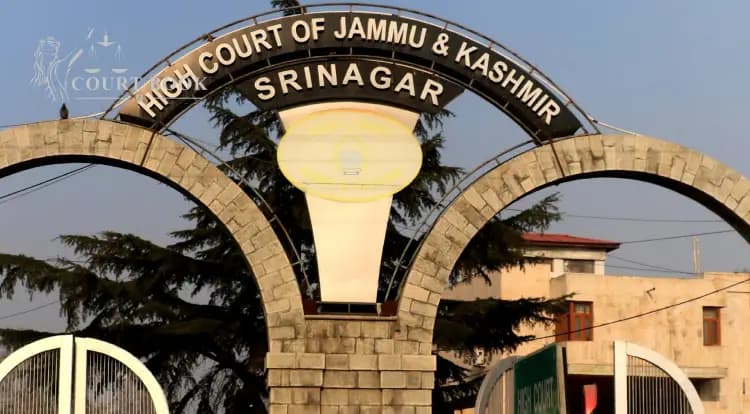The Jammu and Kashmir and Ladakh High Court has set aside the conviction of Mohd. Shafi, who was sentenced to life imprisonment for allegedly murdering his two-year-old son in 2013. The division bench, comprising Justices Sanjeev Kumar and Moksha Khajuria Kazmi, found severe gaps in the prosecution's case, including unreliable witness testimonies and lack of direct evidence.
"A person who administers poison to kill a person will not keep the leftover poison, if any, with him for months together and wait for the police to come and recover it from him."
Read Also:- Supreme Court Condemns J&K Government for 16-Year Delay in Regularizing Daily Wagers
This observation played a crucial role in the court’s decision to overturn the conviction, emphasizing the improbability of the prosecution’s narrative.
Background of the Case
On October 30, 2013, Mohd. Suleiman, the two-year-old son of Mohd. Shafi, died under suspicious circumstances at their home in Indh, Ramban district. Upon receiving information about the child's death, the police initiated an inquest under Section 174 of the Code of Criminal Procedure (Cr.P.C.).
The postmortem report revealed that the child had died due to the consumption of organophosphorus insecticide (Nuvan). The child’s mother, Rubina Begum, accused Shafi of administering the poison, leading to his arrest and prosecution under Section 302 of the Ranbir Penal Code (RPC). The trial court convicted him on August 16, 2023, sentencing him to life imprisonment and imposing a fine of Rs. 10,000.
Key Findings of the Court
Lack of Direct Evidence: The court noted that the prosecution relied solely on circumstantial evidence. There were no eyewitnesses to the crime, and the conviction was largely based on statements made after significant delays.
Read Also:- Jammu and Kashmir High Court Upholds SC/ST Reservation in Promotions, Blocks Unlawful Appointments
Contradictory Witness Testimonies
- The child's mother, Rubina Begum, was the primary witness, but her statements were inconsistent. Her versions before the inquest officer, investigating officer, and trial court varied significantly.
- Other key witnesses, including neighbors and religious figures, denied any knowledge of Shafi administering poison to the child.
- "The witness has made several improvements while making her deposition before the trial court, which runs counter to what she stated before the magistrate in her deposition under Section 164-A Cr.P.C."
- Many prosecution witnesses turned hostile, refusing to support the prosecution's case.
Questionable Recovery of Poison Bottle: The court questioned the credibility of the prosecution’s claim that the poison bottle was recovered over a month after the incident. Witnesses to the recovery denied any knowledge of it being found at Shafi's instance.
- "It is difficult for us to believe the prosecution story that the appellant administered poison to the child, which he had brought in a small Nuvan bottle and that after administering the poison, the appellant kept the bottle with leftover poison hidden in the fields, which the prosecution recovered after more than one month of the occurrence."
Weak Motive
- The prosecution argued that Shafi had a motive due to marital discord and his desire to contract a second marriage. However, the court noted that strained relationships alone do not establish guilt.
- "Motive, in the instant case, as projected by the prosecution, is double-edged. It could be a reason for the appellant to commit the crime or for his wife to falsely implicate him."
Read Also:- Jammu and Kashmir High Court: Trial Court Cannot Revisit Its Final Orders
Failure to Establish a Complete Chain of Circumstantial Evidence
- The court referred to the Supreme Court's ruling in Bhupinder Singh v. State of Punjab (AIR 1988 SC 1011), which stated that murder by poison is usually committed in secrecy, and a killer would not retain incriminating evidence for months.
- The principles laid down in Sharad Birdichand Sarda v. State of Maharashtra (AIR 1984 SC 1622) were also cited, which outline that circumstantial evidence must form a complete chain, leaving no room for alternative explanations. The prosecution failed to meet this standard.
After reviewing the evidence, the High Court concluded that the trial court’s judgment lacked legal and factual support. The contradictions, lack of direct evidence, and improbable circumstances led the bench to overturn Shafi’s conviction and order his immediate release.
Case Title: Mohd. Shafi Vs UT Of J&K















